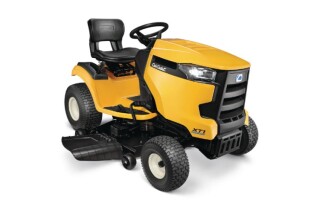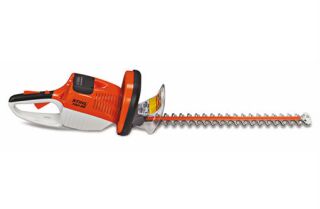Best Sprinklers to Cool Off and Keep Your Lawn Healthy
-
Robert Bosch Tool Corp Nelson 56600 Shut-Off Water Timer Sprinkler -
GARDENA 1975 Aquazoom 3900-Square Foot Oscillating Sprinkler with Fully Adjustable Width Control Sprinkler -
Dramm ColorStorm Spinning Sprinkler -
Gardena 1980 Polo 2,400 Square Foot Oscillating Sprinkler With Adjustable Garden Spray Range -
Buyer's Guide
A good lawn sprinkler is essential during the hot and dry dog days of summer. This is especially true in the southern and western portions of the U.S. Standing out on your lawn and watering your grass may be a good way to pass the time, but it takes a lot of water and a lot of time to get the job done right. To that end, a lawn sprinkler is a better idea all the way around.
The best sprinklers in 2022 listed below were selected based on watering performance and ease of use but price, versatility and design also were considered.
Detailing the Best Sprinklers of 2022
Robert Bosch Tool Corp Nelson 56600 Shut-Off Water Timer Sprinkler - Best Overall
A sprinkler is made to do just one thing, and that is to sprinkle your lawn, garden or shrubs with water. The Nelson Cast Iron Circular Spray Pattern Stationary Sprinkler Head 50950 does exactly that in a simple to use platform that won't fail. The cast iron body makes it stay put where it is placed, and the 30-foot circular spray pattern can be positioned exactly where you need the water to go. The cast iron construction guarantees that this sprinkler will last for decades, and because there is nothing fancy about it, it will be forever reliable. There are no bells or whistles here, just a product engineered to do a job as competently as possible.
GARDENA 1975 Aquazoom 3900-Square Foot Oscillating Sprinkler with Fully Adjustable Width Control Sprinkler - Another Top Pick
This may be the most advanced and expensive sprinkler on the market, and if you want a sprinkler for precision lawn and/or garden coverage, this is the one for you. The Gardena 1979 Aquazoom 2,700 Square Foot Oscillating Sprinkler With Flow Control & Timer will spray water up to 59 feet away and cover an area up to 46 feet wide. It is fully adjustable and gives a realistic 2,700 square foot coverage. This is the true modern day equivalent of those retro oscillating sprinklers of years gone by, yet it gives far better coverage in all directions that can be easily adjusted. It even has a built-in timer, so you can set it and forget it, which makes it perfect for watering in the middle of the night when surface evaporation is at it minimum. For a price no object lawn sprinkler, there are none better.
Dramm ColorStorm Spinning Sprinkler - Honorable Mention
Colorful, practical and effective, that's what the Dramm 15076 ColorStorm Spinning Sprinkler is all about. If you want a sprinkler with a little pizazz built in, this one's for you. It will cover a 38-foot diameter area and it will work effectively with water pressure as low as 20 pounds. That makes this sprinkler a good choice for well water systems. The sprinkler head atomizes the water which means you'll use less water but get equally thorough coverage. It will stay put on your lawn with the heavy duty stationary base, and when your watering chores are finished, just hang it up and away on its built-in hook.
Gardena 1980 Polo 2,400 Square Foot Oscillating Sprinkler With Adjustable Garden Spray Range - Consider
This is the baby sister to the #3 rated sprinkler, and this Gardena 1980 Polo 2,400 Square Foot Oscillating Sprinkler With Adjustable Garden Spray Range does just about everything its big sis does at about one-third of the cost. It will water from a 950 to a 2400 square foot area and has an adjustable range between 23 and 56 feet. It is a standard oscillating sprinkler that moves back and forth, and although not inexpensive, it is a high quality unit that comes with Gardena's 12 month repair or replacement warranty if the unit develops a fault within that time.
Buyer's Guide
Sprinklers are essential tools for every garden or nursery. They spray water in different directions helping us reach every part of the lawn with ease. A sprinkler can make or mar your lawn or landscape. A good sprinkler is the foundation of every lush green lawn. With the review of the best sprinklers above, you have been introduced to various models of sprinklers. We understand that settling for a sprinkler may be tricky. This buying guide will help you through the selection process to ultimately settle for the best. The guide explains various factors related to sprinklers. It also contains a frequently asked questions section that answers sprinkler and irrigation-related questions.
What are the Types of Sprinklers?
Water sprinklers are divided into various categories. This section explains the most common types as well as their pros and cons.
Stationary Sprinklers
This type of sprinkler sprays water through holes found on the sprinkler head. They are ideal for watering small areas. Also, they are easy to use and inexpensive. Stationary sprinklers do not require high water pressure to spray water. However, they can not cover a lot of ground and may require you to move the unit for a wider reach.
Impact Sprinklers
Impact sprinklers are the most common type of sprinklers. They spray water over a considerable distance. Usually, an impact sprinkler requires high water pressure to move its arms in a circle. An advantage of this water sprinkler is that you can adjust the spray angle. They are suitable for watering wide lawns and parks. However, they are not suitable for low-pressure areas like flower beds because the powerful stream of water can cause damage.
Oscillating Sprinklers
Oscillating sprinklers are also popular among gardeners. An oscillating sprinkler usually has a long tube with many holes on it. The sprinkler sprays water through these holes. Once there is enough pressure, the tube moves back and forth to create a wider fan-like spray. They are suitable for open areas where you don’t have trees that hang low. However, it requires constant tweaking to get the placement that gives the best spray.
Traveling Sprinklers
These sprinklers are built to go the distance hence the name. Traveling sprinklers require high pressure to spray water over a large distance. With a traveling sprinkler, you are assured of a sufficient and even spray of water. However, they are not ideal for small or newly seeded lawns.
Rotary Sprinklers
Rotary sprinklers usually have arms with sprinkler heads built into them. They are also known as rotating sprinklers because the heads spin. Rotary sprinklers spray water circularly as the head spins. They are ideal for watering small lawns because their spray range is limited. You may notice an uneven distribution of water.
What are the Things to Consider Before Buying a Sprinkler?
Apart from the distinguishing features of the types of sprinklers mentioned, you will still find subtle differences between various sprinklers. Thus, it is crucial that you consider certain factors when buying your water sprinkler.
Material
If you want a durable product that will stand the test of time, the type of material used to make it should rank top on your list of priorities. Sprinklers are usually made of two kinds of materials – metal and plastic. Of the two, sprinklers made of metals are the more durable. Plastic sprinklers tend to cave in and become brittle after continuous exposure to sun rays.
Metallic sprinklers, on the other hand, can go the distance without fuss. However, some metallic sprinklers may begin to rust after a while. Thus, you should look out for sprinkler heads made of metals with anti-rust properties like aluminum and zinc.
Lawn Size
Another important consideration is the size of your lawn. When you carefully consider this factor selecting one out of the various types of water sprinklers becomes easy. If you have an expansive lawn, impact sprinklers are ideal for you. Conversely, stationary sprinklers will work perfectly for you if your lawn is small.
Another closely related factor to note here is the specific lawn situation. Apart from the size of your lawn, the prevailing circumstances on your lawn should also be considered. If you have flower beds or a newly seeded lawn, you should avoid impact sprinklers.
Motion Sensor
Pests are every gardener’s enemy. They can spoil the landscape and turn your hard work into their playground. Thankfully, some sprinklers are equipped with motion sensors that detect movement. Once movement is detected, they spray water towards the area to ward off the pest.
Rain Sensor
We use sprinklers to deliver water to our plants, albeit in a more controlled manner. However, we will not complain if nature decides to smile on us and send down a shower of rain. In such a situation, the sprinkler and the rain will do the watering. This combo is overkill and not economical. When this happens, a sprinkler with a rain sensor will automatically shut down to allow nature to take its course.
Spray Jets
This factor is important when you are choosing a rotary or oscillating sprinkler. The number of spray jets affects the range of your spray. So, the higher the spray jets, the wider the coverage.
How Much do Sprinklers Cost?
The price of a water sprinkler is usually affected by factors like the kind of material used and the type of sprinkler. Sprinklers cost between $10 and $30.
FAQs
Q: What is the best time to run sprinklers?
A: The best time to run sprinklers is early in the morning, just before sunrise. The weather is still excellent at this time of the day, and the water can penetrate without evaporating.
Q: How many days a week should I run my sprinklers?
A: You should run your sprinklers two to three days per week, depending on the general weather condition.
Q: Is it bad to run sprinklers during the day?
A: The problem with running sprinklers during the day is that you stand the risk of the water evaporating before it penetrates due to high temperatures.














